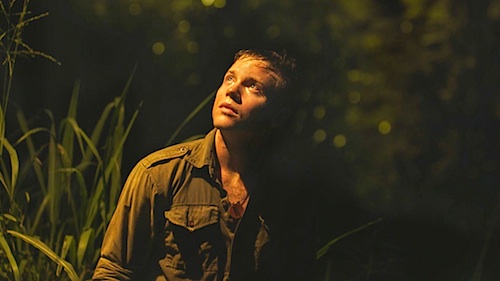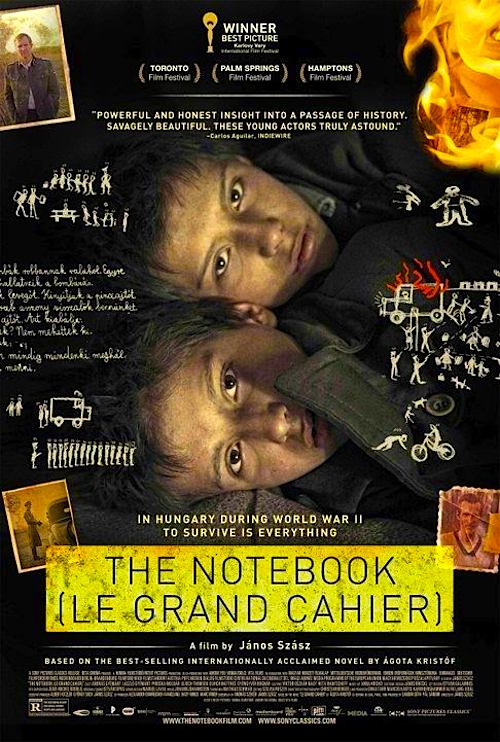By Joe Bendel. Australia and Singapore enjoy close diplomatic and economic ties. There is a free trade agreement between the two countries and Singapore provided assistance to Australia’s Afghanistan deployment. It is a special relationship forged in WWII by soldiers like the two protagonists of Aaron Wilson’s intimately experiential Canopy, which opens this Friday in New York.
For a pilot like “Jim,” being shot down over the dense jungles of Singapore is a double-edged sword. The thick vegetation provides natural cover, but it is an unforgiving and disorienting environment. It makes it difficult to distinguish friend from foe, which becomes an issue when he encounters “Seng.” Somehow, he conveys to Jim he is a Singaporean-Chinese soldier trapped behind enemy lines. An alliance is quickly forged, but few words are exchanged. Even if they were not stealthily evading the Japanese patrols, they could not understand each other anyway.
With its near complete lack of dialogue, Nic Buchanan & Rodney Lowe’s stunning sound design, and Stefan Duscio’s ominously beautiful cinematography, Canopy is likely to generate comparisons to Terrence Malick. It is a richly crafted film, but it is also a taut viewing experience that packs a real emotional wallop. With incredible subtlety, Wilson implies whoever survives the long dark night will honor the memory of their fallen nocturnal comrade for the rest of his life. Clearly, the length of time is not important in Canopy. Rather it is the intensity that matters.
Frankly, it is quite a complement to contend Canopy’s eighty-four minute run time (including credits) actually feels short, given its quiet wordlessness and the measured deliberateness with which Wilson submerges viewers in the murky setting. Yet, just as it is for Jim and Seng, Canopy is over before you know it.

Given Wilson’s approach, Canopy necessarily entails a distinct acting challenge for his two co-leads, but they rise to the occasion quite impressively. For Khan Chittenden, looking like a younger Matt Damon is probably both a curse and a blessing, but such cosmetic matters quickly melt away in Wilson’s jungle. As Jim, he expresses the film’s spirit of solidarity in a way that is genuinely moving. Likewise, the Taiwanese Mo Tzu-yi is silently eloquent and utterly believable as the wounded but resourceful Seng.
Co-productions are all the rage right now, but unlike Hollywood courting China, audiences can feel good about what this Australia-Singapore joint venture represents. Canopy violates nearly every war movie convention, yet it better represents the realities of combat than most of its forerunners. Highly recommended (for disciplined audiences), Canopy opens this Friday (8/29) in New York at the Elinor Bunin Munroe Film Center.
LFM GRADE: A-
Posted on August 25th, 2014 at 10:04pm.
